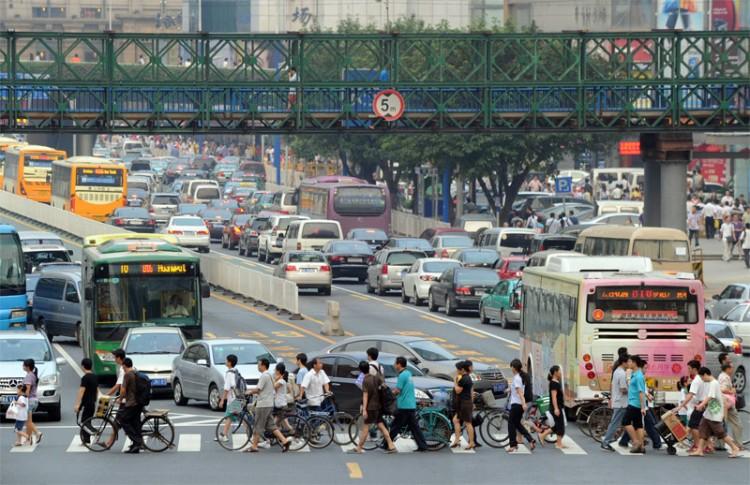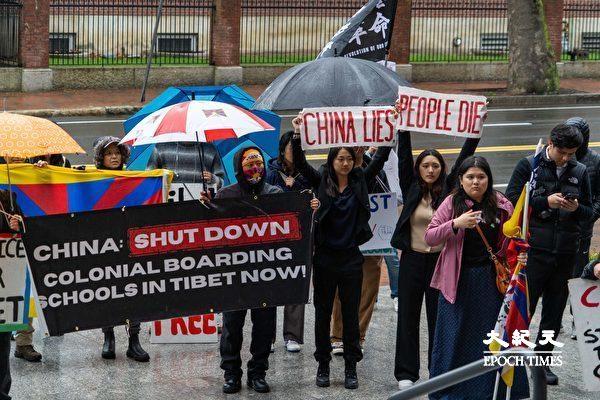Time Weekly, a Guangzhou-based newspaper, has been ordered by the authorities to “rectify” itself after printing a list of 2010’s 100 most influential Chinese people on Dec. 13. The Central Propaganda Department is believed to have taken particular exception to the inclusion of Zhao Lianhai, a Chinese activist for parents of children harmed during the 2008 Chinese tainted milk scandal.
Tactics like “rectification” and “self-criticism” go back to the beginnings of communist activity in China, and were used even before the Party seized power. After 1949 they were deployed fiercely and systematically in political campaigns across the country, perhaps most notably during the Cultural Revolution, and were designed to ensure a communist “purity” of thought among Party members and the masses.
Time Weekly named Zhao Lianhai as one of the 100 Chinese considered to have “influenced the historical progress of China,” just one month after he was sentenced to two and a half years in prison for “disturbing social order.” The illustrated report described his process of appeal in detail.
According to Apple Daily, a deputy minister of the Guangdong Provincial Party Committee Propaganda Department demanded that the rectification be given a low profile in order to avoid attracting too much attention from outside China.
The print versions of the newspaper will operate as normal; the electronic version of the report and related content on Time Weekly’s website were all deleted.
The circulation of Time Weekly is around 30,000. The online edition of the report was published on Dec. 9, four days before the print edition came out; the majority of the newspapers were sold, according to online accounts, and unsold copies were quietly confiscated by censors.
A Time Weekly reporter said the current issue on their desks in the Guangzhou head office has also been confiscated and a deputy editor was asked to write a “self-criticism” on the matter. A staff member said the “rectification” seemed to focus on the executive level, and suggested that some executives might resign in protest.
An editor involved in the report said that the report didn’t draw much attention from the Beijing authorities when it was first published online. However the widespread republication by overseas media made central propaganda officials distinctly irate.
After the news of the “rectification” spread, the public started searching everywhere for the newspaper. Those who found the paper said, “It is worth every effort to find the current issue of Time Weekly!”
Time Weekly was launched in November 2008. It has reported on sensitive topics several times, including “Children of High-Ranking Officials Account for 91 percent of the Billionaires in China,” for which it was reprimanded by the authorities. The deputy editor was also asked to write a self-criticism, but no one was punished.
Zhao Lianhai started the “Home for Kidney Stone Babies” website (jieshibaobao.com), which advocates for the rights of victims of melamine-tainted products. Zhao became an accidental dissident after his own child developed kidney stones after consuming melamine-tainted milk powder. When his attempts to seek justice were repeatedly thwarted, he turned to publicizing the cause himself, rather than expect the authorities to help him.
Read the original Chinese article.
Tactics like “rectification” and “self-criticism” go back to the beginnings of communist activity in China, and were used even before the Party seized power. After 1949 they were deployed fiercely and systematically in political campaigns across the country, perhaps most notably during the Cultural Revolution, and were designed to ensure a communist “purity” of thought among Party members and the masses.
Time Weekly named Zhao Lianhai as one of the 100 Chinese considered to have “influenced the historical progress of China,” just one month after he was sentenced to two and a half years in prison for “disturbing social order.” The illustrated report described his process of appeal in detail.
According to Apple Daily, a deputy minister of the Guangdong Provincial Party Committee Propaganda Department demanded that the rectification be given a low profile in order to avoid attracting too much attention from outside China.
The print versions of the newspaper will operate as normal; the electronic version of the report and related content on Time Weekly’s website were all deleted.
The circulation of Time Weekly is around 30,000. The online edition of the report was published on Dec. 9, four days before the print edition came out; the majority of the newspapers were sold, according to online accounts, and unsold copies were quietly confiscated by censors.
A Time Weekly reporter said the current issue on their desks in the Guangzhou head office has also been confiscated and a deputy editor was asked to write a “self-criticism” on the matter. A staff member said the “rectification” seemed to focus on the executive level, and suggested that some executives might resign in protest.
An editor involved in the report said that the report didn’t draw much attention from the Beijing authorities when it was first published online. However the widespread republication by overseas media made central propaganda officials distinctly irate.
After the news of the “rectification” spread, the public started searching everywhere for the newspaper. Those who found the paper said, “It is worth every effort to find the current issue of Time Weekly!”
Time Weekly was launched in November 2008. It has reported on sensitive topics several times, including “Children of High-Ranking Officials Account for 91 percent of the Billionaires in China,” for which it was reprimanded by the authorities. The deputy editor was also asked to write a self-criticism, but no one was punished.
Zhao Lianhai started the “Home for Kidney Stone Babies” website (jieshibaobao.com), which advocates for the rights of victims of melamine-tainted products. Zhao became an accidental dissident after his own child developed kidney stones after consuming melamine-tainted milk powder. When his attempts to seek justice were repeatedly thwarted, he turned to publicizing the cause himself, rather than expect the authorities to help him.
Read the original Chinese article.





